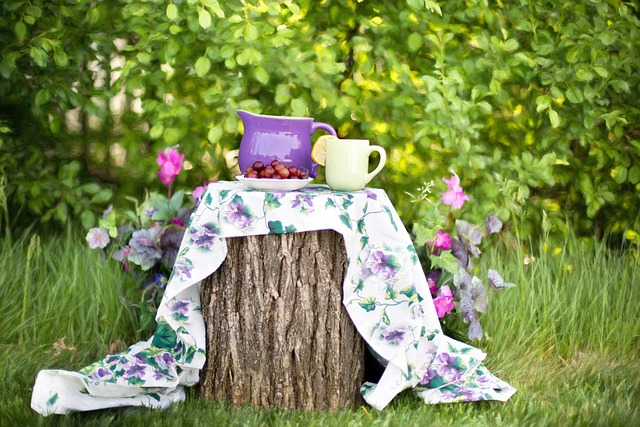
Learning how to to garden can seem like more than what you can handle, but like many other things, it is not hard to research and learn how to do. These tips will almost certainly give you the information you need to upgrade your horticulture strategies and improve as a gardener.
Clay Soil
Digging in hard clay soil is made even more difficult because it sticks to the shovel. Use a thin coat of floor or car wax on your shovel, then buff it with a nice clean cloth to make dealing with clay soil easier. This will keep the soil from sticking, and prevent rusting of the tool.
Plant vines like ivy to cover fences and dividing walls. You can hide an unsightly wall or fence, in as little as one growing season, with the right selection of climbing plant. They can cover an arbor, or grow through trees and shrubs. Some must be tied to supports, but some climbers use twining stems or tendrils and attach themselves to those surfaces. Wisteria, jasmine, honeysuckle, clematis and some rose varieties are good choices for climbers.
Vegetable plants should be planted where they can benefit from a minimum of six hours of sunlight every day. Most vegetables need this amount of sunlight to grow the right way at a faster pace. Some flowers are especially sun-loving as well.
Prior to planting your garden, devise a plan. This will assist you in recognizing your tiny plants when they start to pop up. This is important, because different plants require different care.
Do you like mint, but not how they ruin your garden? Rein their growth; you can do this simply by planting mint inside a larger garden container or pot. You can plant the container into the soil if you want to, but the container will restrict the roots, and make sure that the plant doesn’t run rampant in your garden.
All of your vegetable plants should have approximately two inches, just outside the stem, of organic mulch placed around them. When you place mulch around your plants, it keeps the ground more moist. It will also prevent weeds from sprouting. This will save you time, money, and effort in your lovely garden.
It is particularly important for new gardeners to read and follow instructions that come with tools, as well as chemicals. Some of the chemicals in these products can cause skin irritation, or worse, if you fail to take this simple precaution. So make sure you take precautions, follow the simple directions and be safe.
Horticulture is a great relaxation activity. There are a wide variety of things you can do to release stress and relax. Gardening is a great way to just kick back, chill out, and enjoy your time with nature. The generous return of a garden far outweighs the minimal investment of money required. The best thing you will get out of it is peace and happiness knowing that you can grow your own garden.
Be smart about how you water your garden. Put down the watering can or garden hose, and spread out a time-saving soaker hose instead. Keep the water running slowly so it doesn’t spray up onto the plants’ leaves. It can water the plants for two hours so that you can do other things.
You can help to prevent your plants from developing diseases with aspirin water. An aspirin and a half, combined with a couple of gallons of water, will do amazing things for your plants. Spray your plants with the water if they have a disease. Your plants should be sprayed one time each three weeks.
Increase your property value with landscaping. When you landscape, you can get one of the highest returns. Some great plants can increase your home value tremendously. Select plants and shrubs that won’t require a lot of ongoing maintenance and will adapt well to your climate.
Procrastination leads to problems in a variety of areas, including organic gardening. Sometimes it might prove difficult to get in a little gardening time every day. However, you shouldn’t fret, as there are a few things you can do that can minimize the time you spend gardening when you do manage to get to it. Grab a handful of weeds, throw down some mulch, or toss some water on it anytime you walk by.
Laundry Basket
Old laundry baskets are handy tools at harvest time. The laundry basket can be used as a colander for your produce. You can clean and rinse the harvest when it is the laundry basket and the water will go out of the holes.
In order to claim your crops are legitimately organic and be credible, it is important to your customers that you become organic garden certified. This attracts customers who are willing to drive a little farther and pay a little more for products that are safe and healthy.
A soaker hose is the best choice for watering an organic garden. The water oozes out of the hoses, and it goes directly to the roots of the plants without watering everything around them, including the leaves. These hoses don’t use as much water as a sprinkler does and are much more convenient than watering plants by hand.
Not as difficult as you thought, right? Like anything else, horticulture has a lot of information that can be learned and applied. With a few basic tips, you can get off to a good start on your horticulture adventure. Hopefully, the tips above have provided you with all the information that you need.

